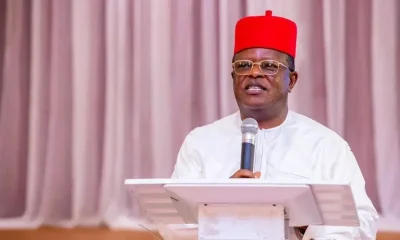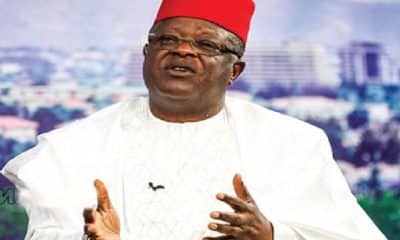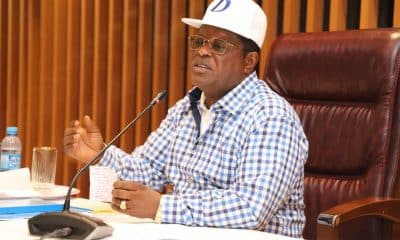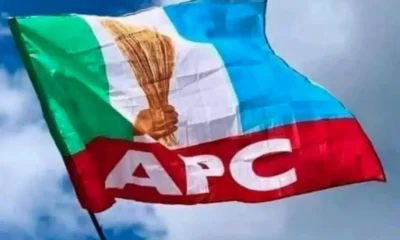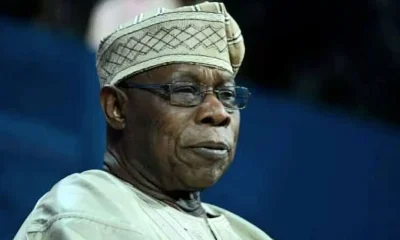Nigeria News
FG Orders Installation Of CCTV On Nine Highways

The Minister of Works, David Umahi, has mandated the installation of closed-circuit television (CCTV) cameras, solar lighting, and enhanced security measures on nine major highways currently under private investment through the Highway Development and Management Initiative.
This directive was announced in a statement issued by his Special Adviser on Media, Orji Uchenna, on Tuesday.
The move comes as part of the government’s efforts to improve the safety and efficiency of key transportation routes across the country.
In May 2023, the government entered into an agreement with private-sector investors to upgrade and manage selected highways, aiming to generate over N11.54 trillion in revenue over a 25-year concession period.
This Public-Private Partnership involves the construction, operations, and maintenance of highways, allowing concessionaires to recoup their investments through toll and non-toll revenues, as negotiated.
The initiative is seen as a significant step towards modernizing Nigeria’s highway infrastructure and boosting economic activities.
However, eight months after the project’s approval, the contractors have not yet commenced work on the site, a situation that has caused frustration for Minister Umahi.
His recent directive and the inauguration of three committees to expedite the implementation of the initiative reflect the government’s commitment to ensuring timely and efficient progress in this critical infrastructure project.
The introduction of CCTV and solar lighting is expected to enhance security and visibility on these highways, addressing safety concerns for motorists and local communities.
He said, “This issue has lingered for four years and six months now but this January, we must conclude everything about the successful companies this month. Those companies who are jokers will be taken out. if we have one or two serious contractors, we engage them to take over the project site.”
But speaking during the event held at the ministry headquarters in Abuja, Umahi harped on the need for the committees to work effectively and concertedly bearing in mind the expectations of Nigerians, in terms of transparency, standard, and efficiency in contract negotiations.
He also directed a review of the scope of work and cost implications to accommodate current economic dynamics and the new policy direction of the present administration and charged the concessionaires to abide by the criteria set and the timeline for the projects.
He said, “We own the design, you will own the cost of the project while we carry out verification on the cost of the projects; the idea is to scope the projects. We want to have a standard road infrastructure to toll.
“Our business is to ensure that your design conforms with the ministry’s standard of design, that is why we are making the Director of Roads and Bridges of the ministry the Chairman of the Committee on Scoping and Design. We don’t want to do just a patch on the road and give it to the public for you to toll. The public will resist. We want to have a standard road to toll.
“We have to provide an alternative road because by law you cannot toll road if there is no alternative route to it. Every one of the projects must have alternative routes. The number of toll gates and toll stations will be determined by the Infrastructure Concession Regulatory Commission.
“We also have to put CCTV Camera, Solar Light and Security on our roads. Whatever that will make our roads safer is very important to us. All these must be considered part of the business.”
According to the statement, the three committees set up by the minister for the actualisation of the HDMI programme are, “Scoping and design, financial and the due diligence and agreement review committee.”
While constituting the Due Diligence Committee, the minister said, “We must have a figure to begin to work with under the Due Diligence Committee, we want to hand over all these sites to people who are serious by the end of March 2024. Enough of these meetings, enough of the bureaucracy.”

